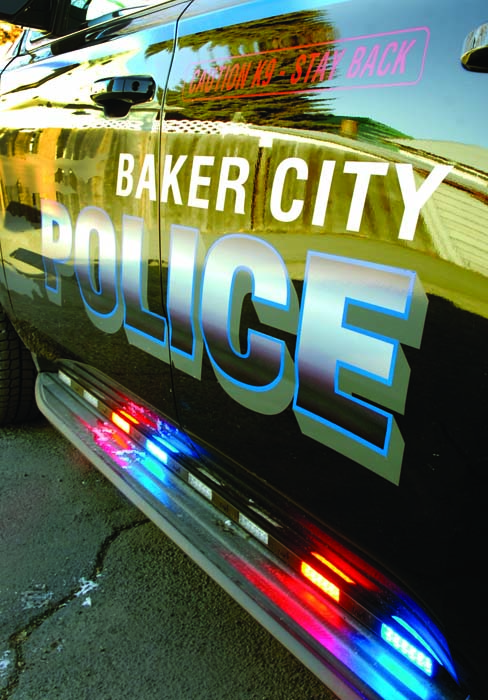Baker City Council approves final reading of public safety fee, marijuana odor ordinances
Published 7:47 am Friday, May 17, 2024

- Local law enforcement are maintaining regular patrols in Baker City and Baker County during the coronavirus crisis.
The Baker City Council on May 14 approved the final reading of an ordinance imposing a public safety fee starting June 1 to bolster budgets for the police and fire departments.
The fee is $10 per month for residential customers and $20 for commercial customers.
The fee will be listed on water/sewer bills.
The ordinance states that the money collected “shall be used for expenses in Public Safety Departments and for no other purpose.”
The ordinance has a maximum monthly fee of $15 for residential properties and $30 for commercial, but the initial fees will be $10 and $20, respectively.
City Manager Barry Murphy estimates the fee will generate about $750,000 annually at the $10/$20 rates.
He projects the city’s general fund, which includes the police and fire departments, will have a shortfall of about $900,000 for the fiscal year that starts July 1.
The city is pursuing two other potential revenue sources — a five-year property tax levy that voters will decide on in the May 21 primary election, and increasing franchise fees, which the city charges to utilities that use public rights-of-way, from 5% to 7%.
Murphy has said that if voters approve the tax levy, which would generate an estimated $850,000 the first year, the city council likely would reduce both the tax levy and the public safety fee, since the city would not need the full amounts of both to balance the general fund budget.
The city will not charge the fee for undeveloped properties.
The ordinance defines a residential unit as a “developed property with a residential structure which provides complete living facilities for one or more persons including, but not limited to, permanent provisions for living, sleeping, and sanitation. A home business in a residential zone will be regarded only as a residential unit, not as a commercial unit. Multi-family residential property consisting of two or more dwelling units, condominium units or individual mobile home units shall have each unit considered as a separate residential unit.”
The ordinance defines a commercial unit as a “developed property that is not primarily for personal domestic accommodation, such as a business or commercial enterprise. A commercial structure which provides facilities for one or more businesses, including, but not limited to, permanent provisions for access to the public, shall have each distinct business facility considered as a separate commercial unit. Motels and hotels shall be considered commercial units for these purposes.”
The ordinance also includes a provision for appeals under these criteria:
“Any responsible party who disputes any interpretation given by the city as to property classification may appeal such interpretation. If the appeal is successful, relief will be granted by reassignment to a more appropriate billing category. In such instances, reimbursement will be given for any overpayment, retroactive to the filing date of the appeal. Factors to be taken into consideration include, but are not limited to: availability of more accurate information; equity relative to billing classifications assigned to other developments of a similar nature; changed circumstances; and situations uniquely affecting the party filing the appeal.”
Marijuana odor ordinance
Also during the May 14 meeting, councilors approved by a 5-2 vote the final reading of ordinance 3401, which is designed to prevent the odor of marijuana growing sites from affecting neighbors.
Councilors Doni Bruland and Nic Carman voted against the ordinance.
Bruland, as she has said in the past, said she’s concerned that the city has established a precedent that could be cited by people who object to odors from things other than marijuana.
“Where does it stop? If it was an issue, that courtroom would have been packed every single time this issue came up,” Bruland said.





